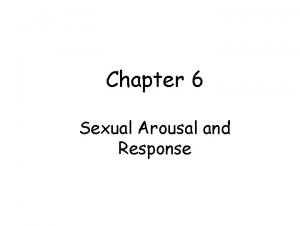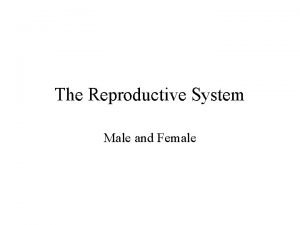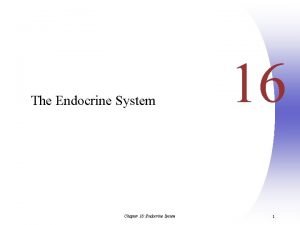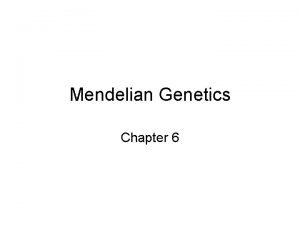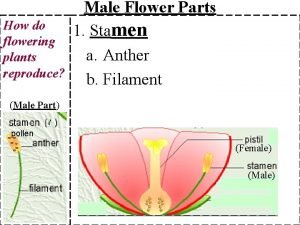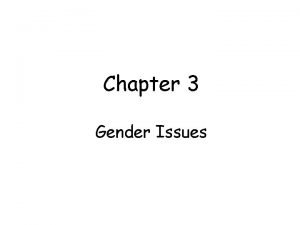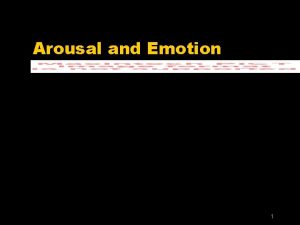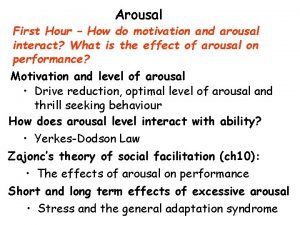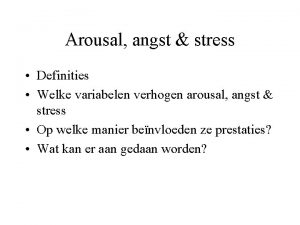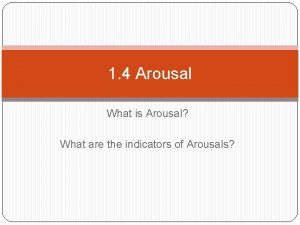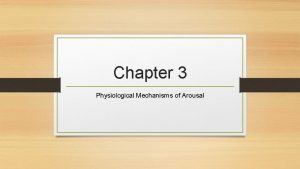Male Sexual Arousal and Perceptions of Female Sexual
















- Slides: 16

Male Sexual Arousal and Perceptions of Female Sexual Willingness Peter Rerick, Tyler Livingston M. A. , & Deborah Davis, Ph. D. University of Nevada, Reno

Overview Introduction Study 1 Study 2 Discussion

Introduction In cases of alleged acquaintance rape, a commonly disputed issue is whether the alleged victim had consented to sex (Villalobos, Davis, & Leo, 2016). Often, the accuser claims that she had indicated nonconsent, the accused claims that the accuser did nothing to clearly indicate nonconsent and that she indicated consent (Anderson, 2002). Men’s perception that women’s behavior indicates sexual interest when it in fact does not is known as the overperception bias (Farris et al. , 2008).

Introduction This sex difference has been eliminated recently when men and women report on behaviors performed by women generally (Wood & Davis, 2016, 2017). Women might also be underreporting their own intentions (e. g. , Engeler & Raghubir, 2018). While most of these studies and judgments take place in a lab setting, real sexual interactions take place in different contexts.

Introduction Situation-specific goals might direct interpretation toward confirmation of expectations or desires, i. e. , motivated perception (e. g. , Spencer, Fein, Zanna, & Olson, 2003). Aroused men: Will endorse more coercive sexual strategies (Bouffard & Miller, 2014) Report increased willingness to engage in unsafe sex (Ariely & Lowenstein, 2006) Under conditions of sexual arousal, men might perceive women’s behaviors as consistent with their goal of having sex.

Study 1: Method 201 undergraduate men participated online (60% white) Participants assigned to arousal or non-arousal Answered demographic questions and past sexual experiences questionnaire Arousal manipulation Answered 25 questions about the meaning of women’s behaviors (Sexual Intent Perception Questionnaire SIP-Q) Women: 1 Often do this even when not willing to have intercourse 2 Sometimes do this even when they are not willing to have intercourse 3 Never do this unless willing to have intercourse

Study 1: Results Manipulation successful (t = 24. 43, p<. 001). M = 6. 57 for arousal group, M = 1. 2 for non-arousal group. SIP-Q was reliable (α=. 92, ω=. 95). Arousal group (M=1. 92) interpreted more sexual intent than non-arousal group(M = 1. 81, t=2. 22, p=. 03). Single participants (n = 118, p =. 04) Non-single participants (p =. 35) Interaction between relationship status and arousal nonsignficant

Study 1: Results Several questions had little or no variance SIP-QS made of 10 questions that at least 10% agreed indicated at least some sexual willingness (α=. 86, ω=. 90) Full sample (t = 3. 01, p=. 003) Single participants (p =. 002), non-single (p =. 37) No significant interactions between relationship status and arousal condition Arousal and SIP-Q Scores unrelated to past sexual experiences

Study 1: Discussion Participants relied more on present state sexual arousal to interpret women’s behavior Past sexual experiences were unrelated to interpretations of behavior (Similar to Bouffard & Miller, 2014) Perhaps for single men only?

Study 2 : Method Differences 117/215 participated in lab (no differences on relevant variables) More intuitive SIP-Q response scale 7 point scale asking, “How likely is it this behavior means she wants to have sex? ” Visual manipulation rather than writing task Arousal group viewed 10 pictures of women in lingerie Non-arousal group viewed 10 pictures of women in winter clothing

Study 2: Results Arousal manipulation successful but less powerful (t = 4. 26, p <. 001) SIP-Q reliable (α=. 96, ω=. 97) but still had problems with floor effects 1 point difference in means, compared to 5 point difference in Study 1 Same 10 questions had normal variability (SIP-QS, α=. 92, ω=. 94). Significant interaction between relationship status (n = 107 single) and the arousal manipulation (F = 5. 42, p =. 02) on SIP-QS Arousal manipulation successful for single participants (t = 2. 34, p =. 02) Unsuccessful for participants in a relationship (t =. 87, p =. 39) Past sexual experiences unrelated to arousal or interpretations of sexual intent

Study 2: Discussion Much weaker manipulation, weaker effect Visual stimuli less arousing than fantasies? Lends support to patterns from Study 1 Sexual arousal increases perceptions of sexual intent in women’s behaviors

General Discussion Past sexual experiences were not related to perceptions of women’s behaviors in either study Men (especially single men) rely on present state sexual arousal to interpret women’s behaviors Perhaps single men have increased motivation to perceive behaviors as indicating sexual interest if sex is more scarce than for men in relationships

Future Directions Women, of course! Do they interpret men’s behaviors differently? What about their own behavior? More precise measures of sexual arousal Penile plethysmography Are the relationship status findings stable?

Thank You! Questions? prerick@nevada. unr. edu

References Anderson, M. J. (2002). From chastity requirement to sexuality license: Sexual consent and a new rape shield law. George Washington Law Review, 70, 51 -162. Ariely, D. , & Loewenstein, G. F. (2006). The heat of the moment: The effect of sexual arousal on sexual decision making. Journal of Behavioral Decision Making, 19, 87 -98. doi: 10. 1002/bdm. 501 Bouffard, J. A. , & Miller, H. A. (2014). The role of sexual arousal and overperception of sexual intent within the decision to engage in sexual coercion. Journal of Interpersonal Violence, 29(11), 1967 -1986. doi: 10. 1177/0886260513515950 Engeler, I. , & Raghubir, P. (2018). Decomposing the cross-sex misprediction bias of dating behaviors: Do men overestimate or women underreport their sexual intentions? Journal of Personality and Social Psychology, 114, 95 -100. doi: 10. 1037/pspi 0000105 Farris, C. , Treat, T. A. , Viken, R. J. , & Mc. Fall, R. M. (2008). Sexual coercion and the misperception of sexual intent. Clinical Psychology Review, 28, 48– 66. doi: 10. 1016/j. cpr. 2007. 03. 002 Spencer, S. J. , Fein, S. , Zanna, M. P. , & Olson, J. M. (2003). Motivated social perception: The Ontario symposium (Vol. 9). New York, NY: Psychology Press. Villalobos, J. G. , Davis, D. , & Leo, R. A. (2016). His story, her story: Sexual miscommunication, motivated remembering, and intoxication as pathways to honest false testimony regarding sexual consent. In R. Burnett (Ed. ), Vilified: Wrongful allegations of person abuse. Oxford, UK: Oxford University Press. doi: 10. 1093/acprof: oso/9780198723301. 003. 0010 Wood, E. F. Davis, D. (2016). “Perceived and actual probative and definitive value of sexual behaviors in college students: Which behaviors have most potential for miscommunication? ”, Society for Personality and Social Psychology. (January). Wood, E. F. , & Davis, D. (2017). "Perceived versus actual links between intoxication and sexual availability", American Psychology Law Society. (March).
 Sexual arousal in men
Sexual arousal in men Male sexual response
Male sexual response What is sexual arousal
What is sexual arousal Female testes
Female testes Major endocrine glands male and female
Major endocrine glands male and female Chapter 16 matching questions 1-5
Chapter 16 matching questions 1-5 Female and male reproductive system
Female and male reproductive system Hibiscus parts
Hibiscus parts Colorblind punnett square
Colorblind punnett square Male and female part of a flower
Male and female part of a flower Part of flower that produces pollen
Part of flower that produces pollen Difference between male and female fruit flies
Difference between male and female fruit flies Male and female skull differences
Male and female skull differences How many teeth does a human have
How many teeth does a human have Male part of a flower
Male part of a flower Pelvis diameter
Pelvis diameter Sex male and female
Sex male and female

